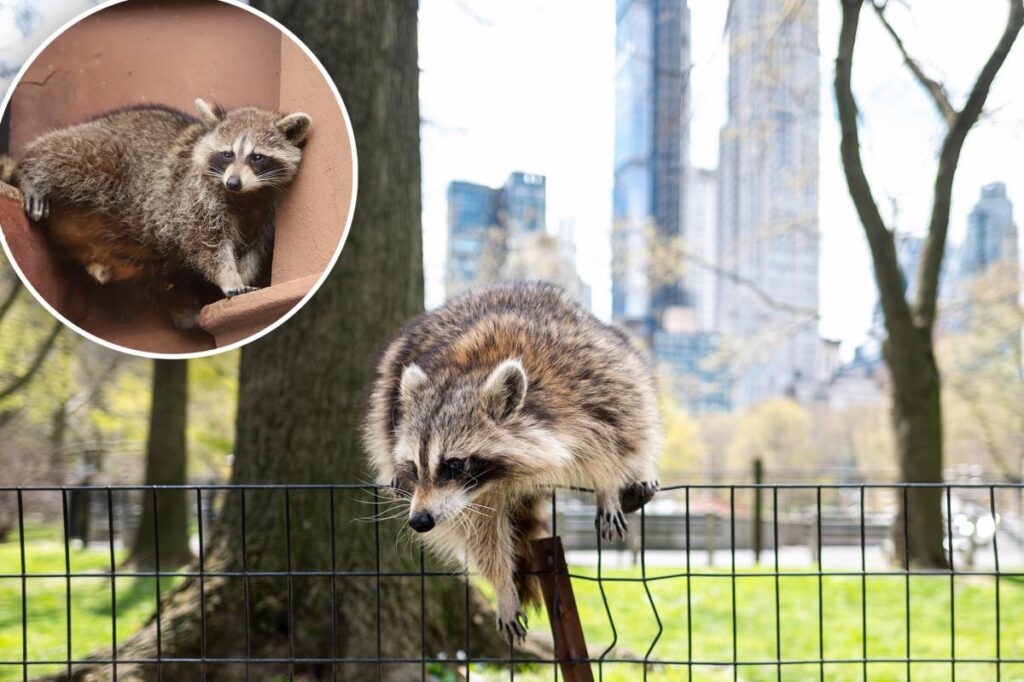The days of trash-talking raccoons may be coming to an end.
A new study published in the journal Frontiers in Zoology found that city-dwelling raccoons are showing early signs of domestication — and becoming increasingly adorable to humans.
“I wanted to know if living in a city environment would kickstart domestication processes in animals that are currently not domesticated,” study co-author Raffaela Lesch, a zoologist at the University of Arkansas Little Rock, said in a statement.
“Would raccoons be on the pathway to domestication just by hanging out in close proximity to humans?”
According to Lesch, the physical signs a species is becoming domesticated often include shorter snouts, floppy ears, white spots and a reduced fear response towards humans — traits that are common among household pets, such as dogs.
Researchers analyzed photos uploaded to iNaturalist, a citizen-science reporting app for smartphones. They discovered that raccoons in urban environments have shorter snouts than those in rural regions, which could be one of the several traits that make up “domestication syndrome.”
The snouts of raccoons in densely populated areas were about 3.5% shorter than their rural neighbors.
Domestication begins when animals start adapting to new environments created by humans — which, for so-called “trash pandas,” would be digging around in dumpsters for a meal.
“Trash is really the kickstarter,” Lesch said. “All they have to do is endure our presence, not be aggressive, and then they can feast on anything we throw away” — much like cats, whose M.O. is to tolerate our aggressive petting and canoodling until feeding time.
“It would be fitting and funny if our next domesticated species were raccoons. I feel like it would be funny if we called the domesticated version of the raccoon the trash panda.”
Domesticated animals tend to become less aggressive toward humans over time as they develop a relationship in which people provide for them in exchange for resources.
In 2014, scientists proposed that mutations in stem cells during an animal’s development could lead to these “domestication syndrome” trait changes — and these new findings seem to support that hypothesis, the researchers wrote.
Researchers say that the shorter snout length and reduced fear response seen in urban raccoons likely reflect linked traits shaped by natural selection, enabling the animals to better exploit human environments.
Meanwhile, animal lovers of Instagram seem to be enthusiastic about the possibility of raccoons becoming America’s next pet.
“Does anybody know when the raccoon distribution system goes live? I am very interested in this new pet,” one person commented on a video explaining the domestication.
“An adorable, intelligent animal that is driven purely by food, making it highly trainable, with no predatory/killer instincts that would make it as dangerous, sounds like the perfect pet already,” someone added.
“Raccoons domesticating themselves like dogs and cats originally did is totally believable. They’re sooo smart,” a user pointed out.
“I want them to be our pets, they’re f–king adorable,” one declared.
“I have one in my attic right now. Can it come down to become my pet instead of eating my attic walls?” someone asked.
In October, the New York City Health Department started efforts to vaccinate raccoons against rabies in a bid to “protect New Yorkers, their pets, and the City’s wildlife,” Acting Health Commissioner Dr. Michelle Morse said in a statement.
The city DOH began littering the streets with small, brown colored and fish-scented packets tailor-made to attract hungry raccoons. As the raccoons chow down on the pink liquid inside the packets, they’ll ingest oral rabies vaccine and become immunized against the disease, which is a death sentence.
Read the full article here
